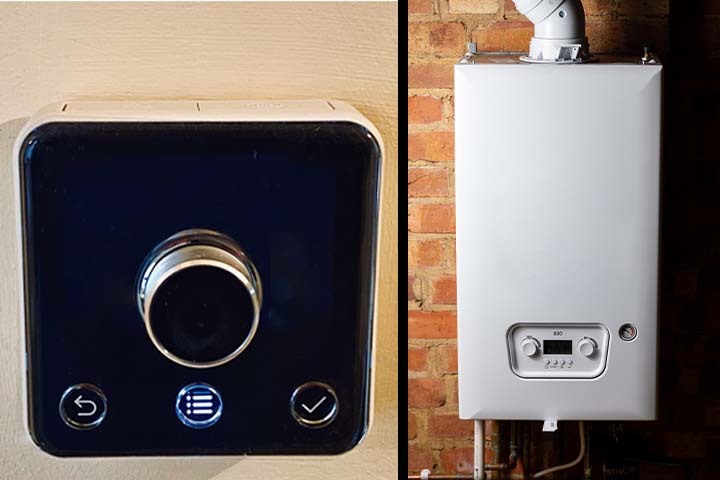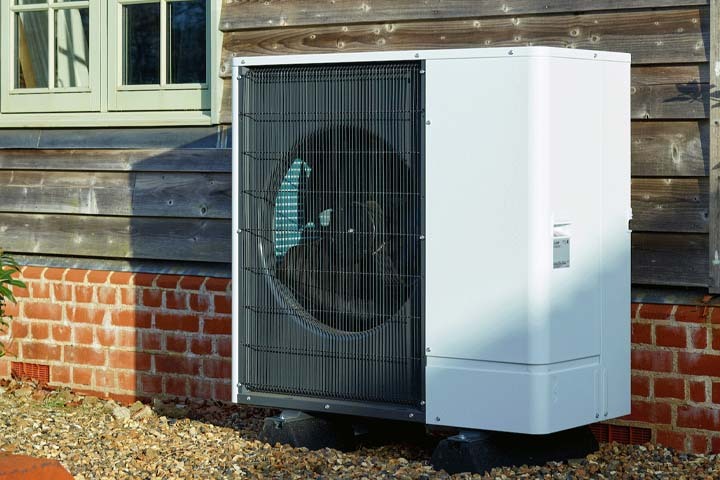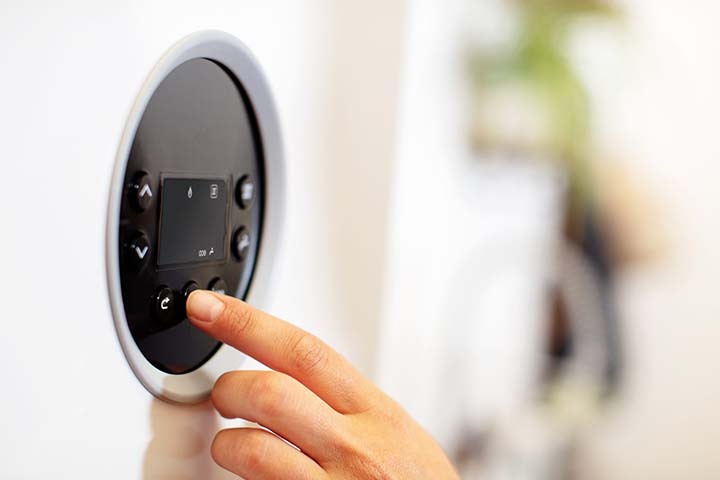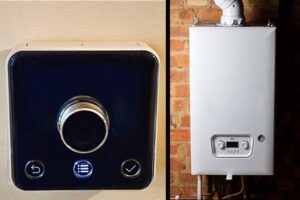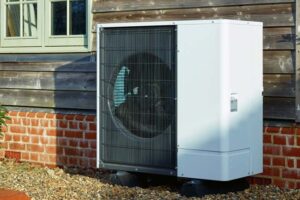Table of Contents
Boilers are a fundamental component of many households, supplying warmth and hot water throughout the year. When selecting a boiler for your home, one of the critical decisions you’ll face is whether to opt for a System Boiler vs regular boiler. Both choices have pros and cons, and understanding their differences is necessary for making an informed choice.
What is a system boiler?
A system boiler, known as a sealed system boiler, Larger houses with more than one bathroom are well suited to system boilers. No water tank is needed; only a hot water cylinder can save much-needed attic space for storage or conversion. System Boiler can draw hot water to several bathrooms at a time, which is why they are ideal for large houses with a lot of traffic through the bathrooms before school or at night.
What are the components of a system boiler?
There are only two components of a system boiler: the boiler itself and an external storage tank. Everything else required to generate a continuous heating and hot water supply is integrated. Depending on your usage, you may need to refill the tank once or twice a day.
How does a system boiler work?
A system boiler works similarly to a regular boiler but provides a space-saving alternative. This is because system boilers are built with the expansion vessel and pump built-in, making them easy to install and maintain. The added benefit is that these in-built parts fall under the manufacturer’s warranty. As with a System Boiler vs regular boiler, water is heated and stored in a hot water cylinder in your hot press.
As long as enough hot water is in the cylinder, it can simultaneously be sent to as many taps as needed, making system boilers perfect for larger houses with more than one bathroom. To avoid having to wait for hot water, you can arrange for your system to heat the water in advance using programmable heating controls.
If you have a regular boiler and are planning an attic conversion, a system boiler may be the one for you!
Why get a system boiler?
System boilers are ideal for homes with higher water heating demands. Let’s take a look at some of the benefits that make choosing a System Boiler vs regular boiler a good option for larger homes.
Advantages of a system boiler to homeowners
- Constant hot water to any number of taps
- No need for a cold water tank in the attic
- Manufacturer’s warranties generally cover pump and expansion vessels
- Save money on utilities, particularly if you’re replacing an old boiler
- Compatible with solar
- Compatible with heating controls
- Energy Efficiency
Disadvantages of a system boiler to homeowners
- You will need to wait for the water to heat up
- Programmers will be required if you want to preheat water
- A hot water cylinder is required
- Hot water can run out
What are regular boilers?
A regular boiler, sometimes known as a conventional, traditional boiler, or even a heat-only boiler, is designed to provide your home’s heating and hot water with an additional cold water tank and hot water cylinder.
A regular boiler system is made up of three parts:
- The boiler itself, which sends hot water to your central heating system
- A cold water tank, which feeds your hot water tank to provide hot water for daily use
- A hot water tank which stores the heated water in bulk and allows for multiple showers, taps, and baths to run simultaneously
How does a regular boiler work?
To provide heating, cold water from the tank in the loft feeds down to the boiler. The tank is usually as high above the boiler as possible to help improve the water flow in your system. When you fire up the boiler (either by turning on the hot tap or switching on the heating), cold water is warmed by a heat exchanger. The heated water is then pumped to a hot water storage cylinder (usually in an airing cupboard), where it is stored and circulated until you need it. From there, valves direct the hot water to either your heating or your taps.
Characteristics of regular boilers:
Versatility
Regular boilers are compatible with a wide range of heating systems, making them suitable for both new builds and existing properties. They can accommodate various types of hot water cylinders, including vented and unvented models, offering flexibility in design and installation.
Reliable Performance
Regular boilers are known for their reliability and durability. With their simple, time-tested design, they require minimal maintenance and are less prone to breakdowns, providing consistent heating and hot water year after year.
High Hot Water Output
Regular boilers typically have a large hot water cylinder, allowing them to supply high volumes of hot water on request. This makes them well-suited for houses with multiple bathrooms or high hot water usage.
Compatibility with Low Water Pressure
Unlike system boilers, regular boilers can function effectively in properties with low water pressure, thanks to the gravity-fed system. This makes them a practical choice for homes located in areas with inadequate mains water pressure.
Pros and Cons of a regular boiler
Here are some advantages and disadvantages of System Boiler vs regular boiler
Pros of regular boilers
- Can meet high demand for heating and hot water
- Simple to replace an older system
- They’ve become more efficient
- Fit an immersion heater as a backup
- Solar compatible
Cons of regular boiler
- Take up a lot of room
- Hot water isn’t instant
- Expensive installation
Which boiler is right for your home?
Both System Boiler vs regular boiler are a good option for homes that are bigger or have more than one bathroom. They also suit families with a significant demand for hot water because of the cylinder that can store vast amounts. System boilers will save you storage space, which may be fine if you have plenty of space. If you’re installing from scratch, a system boiler may be less expensive because it does not need a tank.
On the other hand, many homes are already set up with a regular boiler, and if the tank is in good condition, it won’t need replacing. Changing it like for like, if it still suits your needs, is easier in some ways than removing the tank.
Once you’ve chosen between a system and a regular one, you’ll also need to consider the boiler size to use. This doesn’t mean how big the unit is but refers to its output. Your boiler output indicates how much power it has, and generally speaking, the more hot water and heat you require, the bigger the output you’ll need. If you have many rooms in your house and use your heating and hot water frequently, you should go for a larger output.
Conclusion
System Boiler vs regular boiler are two popular heating solutions offering different advantages and considerations. System boilers provide space-saving design, easy installation, and consistent water pressure, making them ideal for many modern homes. On the other hand, regular boilers offer versatility, reliable performance, and compatibility with low water pressure, creating them a practical choice for a vast range of properties.
When choosing between a system boiler and a regular boiler, factors such as property size, hot water demand, water pressure, and energy efficiency must be assessed. By carefully evaluating your options and consulting with heating professionals, you can select the right boiler system to effectively meet your heating and hot water needs. Whether you opt for a compact system boiler or a traditional regular boiler, investing in a high-quality heating system is crucial for maintaining comfort and efficiency in your home for years to come.




